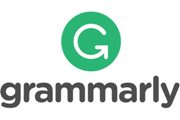HUBUNGAN ANTARA POLA ASUH ORANG TUA DAN PENGGUNAAN APLIKASI PARENTAL CONTROL TERHADAP PEMBENTUKAN PERILAKU DIGITAL YANG SEHAT PADA ANAK
Keywords:
parenting, parental control application, digital behavior, childrenAbstract
This research aims to find out: (1) the positive relationship between parenting and the formation of healthy digital behavior in children, (2) the positive relationship between the use of parental control applications to the formation of healthy digital behavior in children, and (3) the positive relationship between parenting and the use of parental control applications together towards the formation of healthy digital behavior in children at SD Negeri Tenjonagara. Research uses correlational methods with a quantitative approach. The research samples were students as well as parents/guardians of grade III and IV students of Tenjonagara State Elementary School totaling 57. Data collection techniques using questionnaires. The data analysis techniques used are univariate, bivariate, and multivariate analysis. The results showed that: (1) a positive relationship between parenting and the formation of healthy digital behavior in children. This is shown by the r value of the calculation greater than the r table (0.836 > 0.2609) and the significance value of 0,000 < 0.05; (2) there is a positive relationship between the use of parental control applications for the formation of healthy digital behavior in children. This is shown by the calculated r value greater than the r table (0.967 > 0.2609) and the significance value of 0,000 < 0.05; and (3) the positive relationship between parental parenting and the joint use of parental control applications for the formation of healthy digital behavior in children. This is shown from the correlation coefficient or R of 0.971 > 0.2609, and the significance value of 0,000 < 0.05. Thus, the alternative hypotheses proposed in this study are accepted.
References
Adi, T.N. (2017). Pola Pengawasan Orang Tua Terhadap Aktivitas Anak di Dunia Maya: Studi Kasus Pada Keluarga dengan Anak Remaja Usia 12-19 Tahun di Purwokerto. Acta Diurna. Vol.13 No. 2, 3.
Anggita, A. D., Purnamasari, I., & Rais, R. (2021). Analisis Faktor-Faktor Yang Mempengaruhi Perilaku Menyimpang Pada Anak Usia Sekolah Dasar di SD Negeri Pleburan 03 Semarang. Harmony: Jurnal Pembelajaran IPS Dan PKN, 6(1), 1-5.
Halimah, N., dan Kawuryan, F. 2010. Kesiapan Memasuki Sekolah Dasar Pada Anak yang Mengikuti Pendidikan TK Dengan yang Tidak Mengikuti Pendidikan TK di Kabupaten Kudus. Jurnal Psikologi Universitas Muria Kudus. Vol 1, No 1. Kudus. Universitas Mulia Kudus.
Hermawan, R. (2019). Penerapan Aplikasi Parental Control Screen Time Dalam Penggunaan Smartphone Bagi Anak-Anak. SAP (Susunan Artikel Pendidikan), 4(1).
KBBI (Kamus Besar Bahasa Indonesia). Kamus versi online/daring (Dalam Jaringan). diakses pada 23 Mei 2023. Tersedia: https://kbbi.kemdikbud.go.id/
Munawar, M., Fakhruddin, F., Rifai, A., & Prihatin, T. (2019). Keterlibatan Orangtua dalam Pendidikan Literasi Digital Anak Usia Dini. In Prosiding Seminar Nasional Pascasarjana (PROSNAMPAS) (Vol. 2, No. 1, pp. 193-197).
Palit, R., Laloma, A., & Londa, V. (2021). Perilaku Masyarakat Di Era Digital (Studi Di Kelurahan Tingkulu Kecamatan Wanea Kota Manado). Jurnal Administrasi Publik, 7(99).
Rahmawati, A. N. (2022). Peran Pola Asuh Orang Tua Milenial Terhadap Pembentukan Keterampilan Berpikir Abad 21. Jurnal Bimbingan dan Konseling Islam, 12(1), 21-36.
Sudjana, N. (2011). Penilaian Hasil dan Proses Belajar Mengajar. Bandung: Rosda Karya.
Suryabrata, S. (2012). Psikologi Pendidikan. Jakarta: Raja Grafindo Persada.
Suryandari, S. (2020). Pengaruh Pola Asuh Orang Tua Terhadap Kenakalan Remaja. JIPD (Jurnal Inovasi Pendidikan Dasar), 4(1), 23-29.
Supardi. (2017). Statistik Penelitian Pendidikan;Perhitungan, Penyajian, Penjelasan, Penafsiran Dan Penarikan Kesimpulan. Depok: Rajawali Press.
Tamburaka, A. (2013). Literasi Media: Cerdas Bermedia Khalayak Media Massa. Jakarta: Raja Grafindo Persada.
Undang-Undang No.39 Tahun 1999 tentang Hak Asasi Manusia Pasal 1 Angka 5.
Downloads
Published
How to Cite
Issue
Section
License
Copyright (c) 2025 Sebelas April Elementary Education

This work is licensed under a Creative Commons Attribution-NonCommercial-ShareAlike 4.0 International License.







